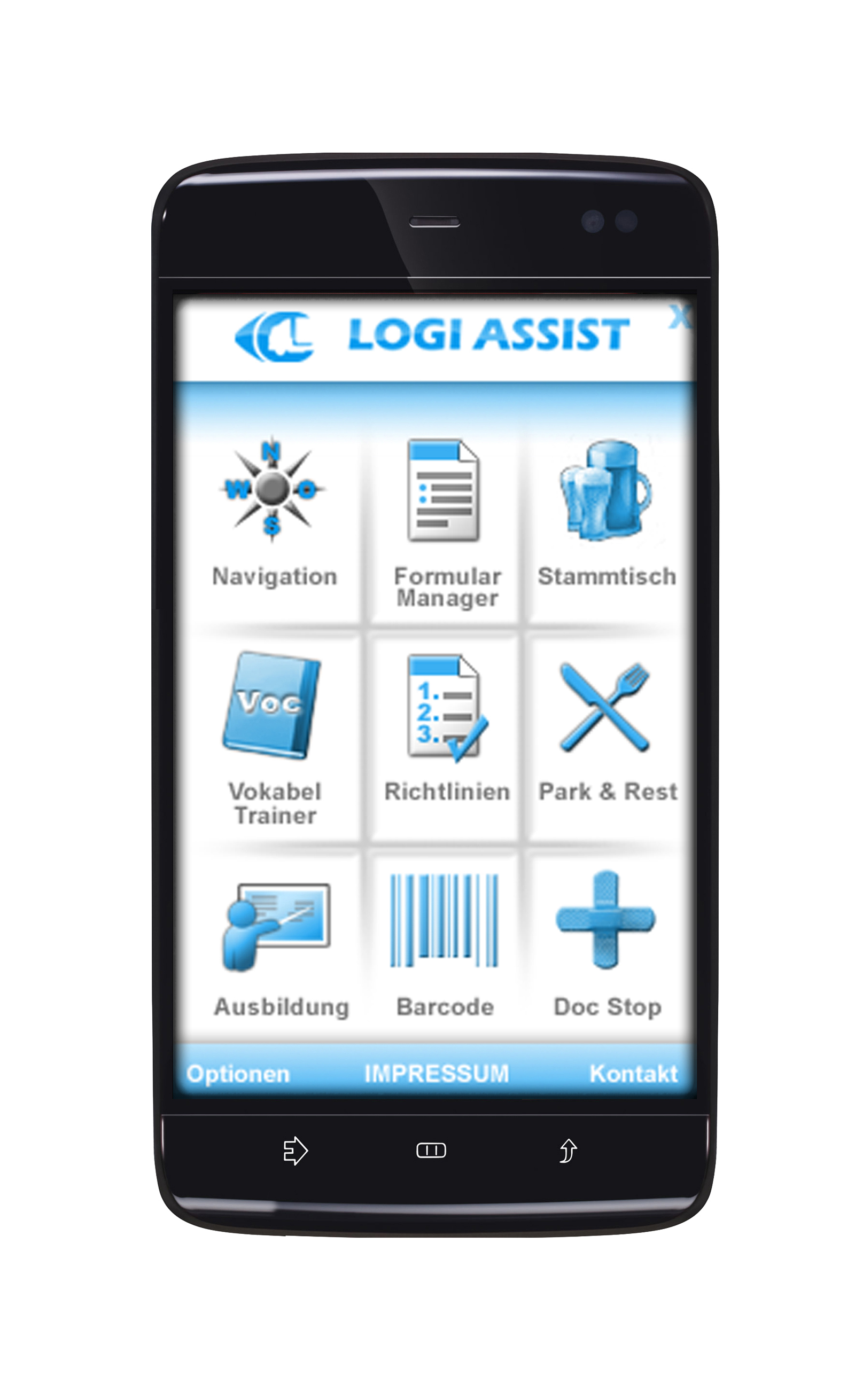Learning while driving
Everyone learns differently. Research scientists have therefore developed a system which adapts learning content to specific individual requirements. LogiAssist addresses the needs of companies in the logistics sector and long-distance truck drivers. They can learn while out on the road using audio lectures, text documents or video.
The days are long gone when all you needed to be a truck driver was a heavy goods vehicle license and the ability to read a map. Nowadays it is a skilled occupation which requires lots of qualifications. Modern truck drivers have to operate electronic devices, adapt their routes expertly to the given traffic and loading situation, know how to drive fuel-efficiently, be up to date with statutory regulations and monitor the safety of their load. Then there is all the complex legislation introduced at EU level. What’s more, drivers who make trips to other countries also need some knowledge of foreign languages and have to be familiar with the regulations applying in different countries. Modern truck drivers always have something new to learn, and are even obliged by law to keep up with developments. The problem is that they spend most of their time behind the wheel. Trucks only earn money when they are out on the road and so the driver’s time for anything else is very limited.
With this in mind, research scientists at the Fraunhofer Institute for Applied Information Technology FIT in Sankt Augustin, working in close cooperation with partners from the logistics and training sectors, have developed LogiAssist. “The purpose of the system is to help drivers and trucking firms handle their occupational training needs,” explains project manager Dr. Martin Wolpers. The idea is for truckers to listen to an audio lecture after work, during their breaks, or even while driving, and to receive specifically tailored assistance while they are out on the road. Training content is offered via smart phone, tablet computer or laptop – in other words, on devices the driver already uses in his cab. It is tailored to the learning needs of the sector and can be adapted to the relevant context, taking account of prior knowledge, the driver, the vehicle, the load or the route.
The group of research scientists at the Fraunhofer FIT has been working for years on the development of such learning environments in the EU project ROLE – Responsive Open Learning Environments (www.role-project.eu). “We are addressing the needs of several target groups,” adds Wolpers. “These include university students, knowledge workers, suppliers of educational materials and also people with mobile non-desk jobs such as truck drivers – basically anyone who wants to learn by electronic means.” The scientists have worked out standards and applications which enable learners to use a wide range of materials on an individually configured learning platform. The content can be put together from a kit of ready-made tools, which can be operated with the software users are familiar with, including the same browsers and search engines. People can also learn in groups and contact other participants on the online course by chat program, Outlook or Skype. The learning environment is designed to adapt to the learning and working style of the individual. Some may prefer to work through the course on screen using documents, others will mainly use short course sub-units on their cell phone as a video sequence or audio file.
From March 1 to 5 the Fraunhofer FIT will be demonstrating the practical application of these individual learning environments at CeBit in Hanover, Hall 9, Stand B36. Visitors will have the opportunity to try out LogiAssist for themselves. They can also see how Chinese students used ROLE to learn English in a very different way, by putting together their own learning programs.
